Rauch, a National Magazine Award winner, is a Senior Fellow in Governance Studies at the Brookings Institution.
Not often—in fact, pretty much never—have I been lost for words in the gay-marriage debate. But the Supreme Court’s national legalization of marriage equality leaves me gaping and gawping like a guppy. For a homosexual man of my generation, born in 1960 and deeply etched with wounds of self-loathing, discrimination, and bigotry, events in America now feel like the end of a Hollywood movie. Or, perhaps, the beginning a classic rock song, by Queen. Is this the real life? Is this just fantasy?
Although most people correctly predicted how the Supreme Court would rule in Obergefell v. Hodges, my overriding feeling is still, in a word: surprise. How—how in the world—did we get here? I’ve written hundreds of thousands of words about same-sex marriage over a period of two decades, including many predictions. Perhaps there is insight to be had by looking back on nine of them.
How did I do? A mixed bag. Three of my predictions have been wrong, indeed spectacularly (and revealingly) so. Three have been borne out (also revealingly). The jury remains out on three more. Let’s start with those.
1) “A Supreme Court decision imposing gay marriage will spark a fierce backlash.”
For years, I said the federal courts should butt out of the gay marriage debate and leave it to states, where consensus could be gradually and organically developed. I feared that involving the U.S. Constitution too soon would short-circuit a vital process of social persuasion and deprive us of the deeper kind of civil rights victory that comes only from broad public consensus, not from courts.
It’s too early to know how Obergefell will go down. Republican presidential candidates are mostly hostile. But I believe my prediction, although sensible at the time, has passed its sell-by date. A solid national majority now supports same-sex marriage, and holdout states are moving in that direction. When I asked a couple of well-connected social conservatives whether they or others in their world were likely to go to the barricades in a multi-decade campaign of resistance like the one over abortion, both said no. One of them told me, “We could all see that the battle over same-sex marriage was over, and that was true regardless of how the court ruled in this case.”
Here is my guess: Supreme Court Justice Anthony Kennedy, the author of the court’s five-member-majority decision, is the most astute politician in America (counting Bill Clinton as retired). He has shown a flawless knack for knowing how far he can bend public opinion without breaking it, and I believe he has correctly judged that the country is ready to accept his decision.
2) “Gay marriage won’t lead to polygamous marriage.”
Predictably, the Court’s decision led to another of countless rounds of forecasts that the marriage-rights movement will now expand to multiples. (Like this.) Again, we’ll see, but I’m willing to stand by what I’ve long said: the case for gay marriage is the case against polygamy, and the public will be smart enough to understand the difference.
Gay marriage is about extending the opportunity to marry to people who lack it; polygamy, in practice, is about exactly the opposite: withdrawing marriage opportunity from people who now have it. Gay marriage succeeded because no one could identify any plausible channels through which it might damage heterosexual marriage; with polygamy, the worries are many, the history clear, and the channels well understood.
I won’t repeat the reasons; you can read some of them in this article by me or this new book by Stephen Macedo, among many other places. Predicting politics is hard, but I believe polygamy, if it even gets traction as a matter of public debate, will be decided as a policy question, not a civil-rights question—and the answer, correctly, will be no.
3) “Same-sex marriage will be part of a broader renewal of the culture of marriage.”
I’ve always believed that cultural conservatives misunderstood the gay-marriage movement: far from being an attack on the culture of marriage, it represented a shift back toward family values by a group that had learned the hard way, through eviction by their own parents and suffering in the AIDS crisis, how important marriage and commitment and family really are.
Perhaps same-sex marriage will not have cultural coattails. I hope and believe, however, that gay America’s embrace of marriage has sparked renewed interest and appreciation among straight Americans. And the marriage-equality movement has warmed many on the social left to a pro-family agenda. It’s possible now, as never before, to be pro-marriage without being anti-gay. And the big message of gay marriage—“Pro-marriage is pro-equality”—resonates across the spectrum. More than 100 prominent Americans, of varied political and partisan stripe, have already signed a statement calling for a new Marriage Opportunity movement building on the cultural momentum of gay marriage. This is only a beginning, but it is a breeze in the right direction.
So those are predictions where the jury remains out. Now for three I was right about.
See Some of the First Gay Marriages in These States
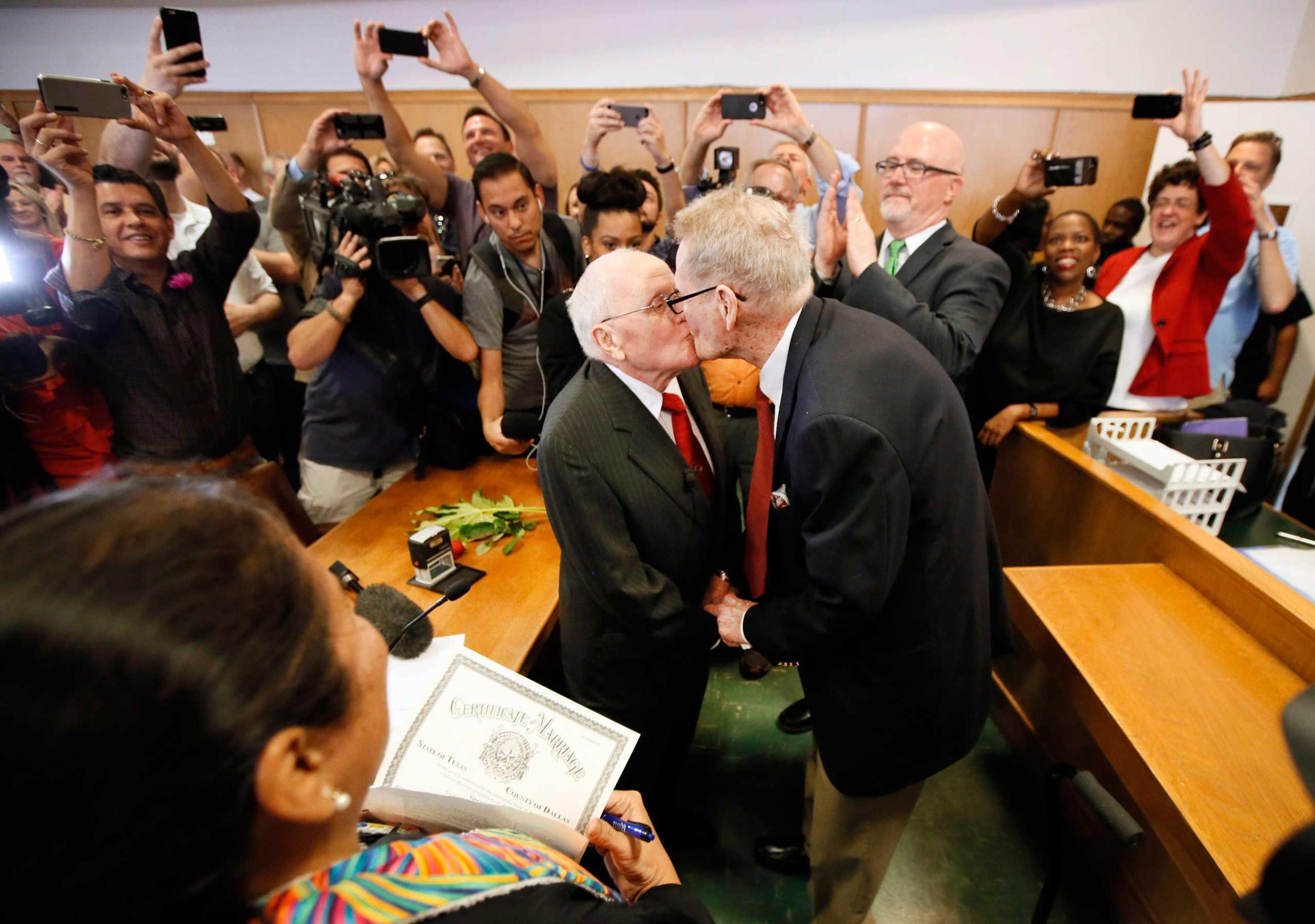
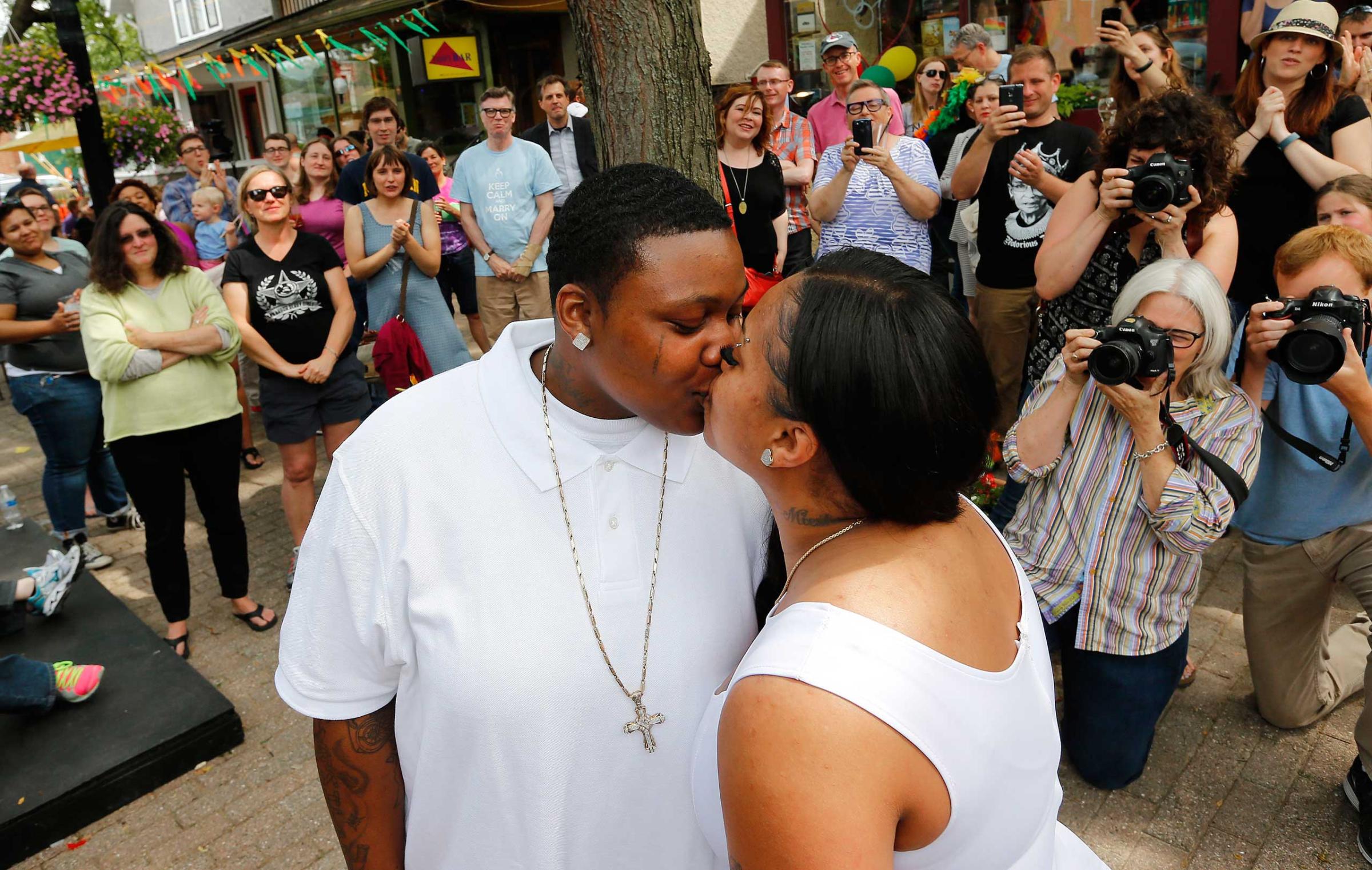
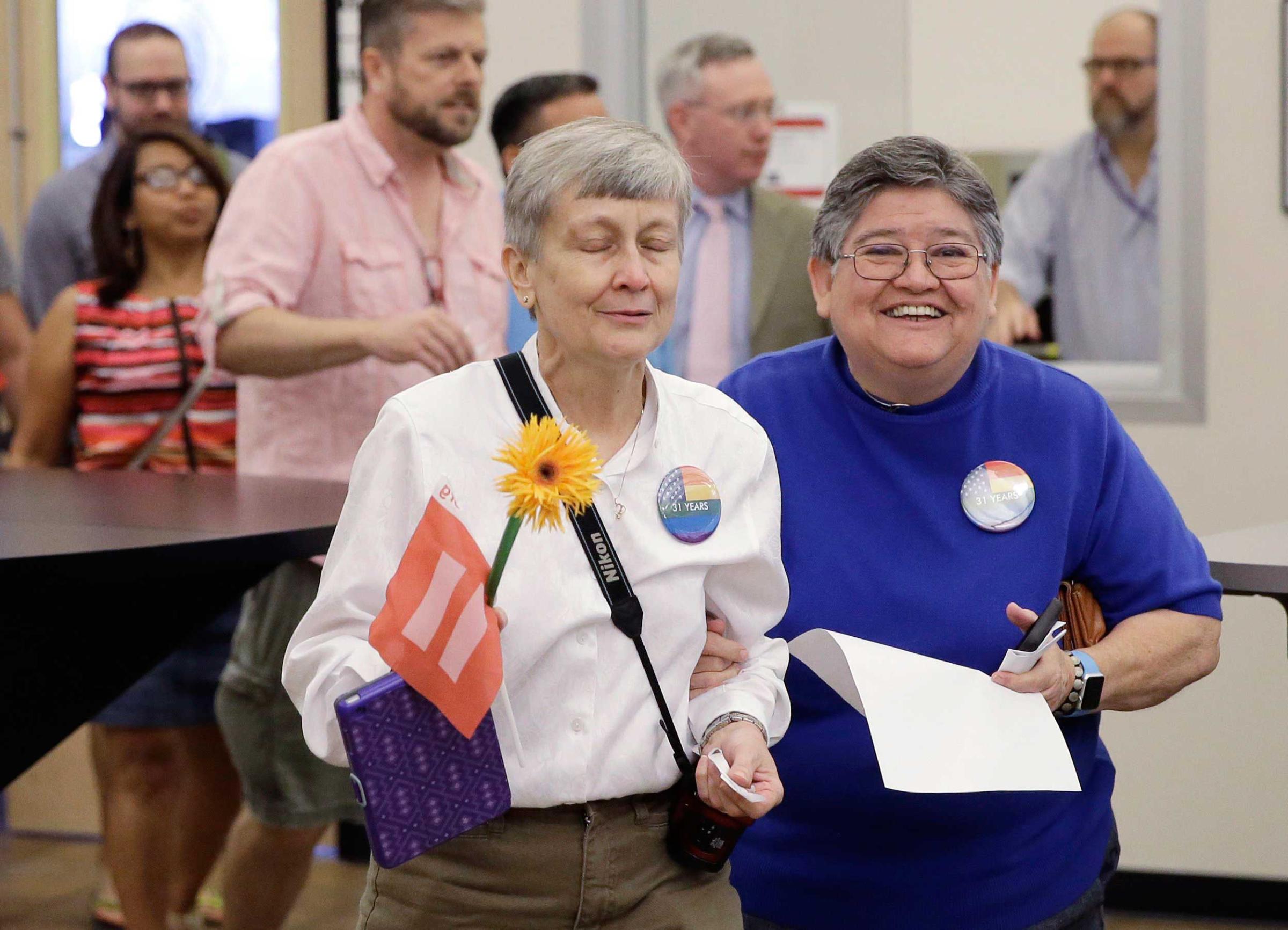
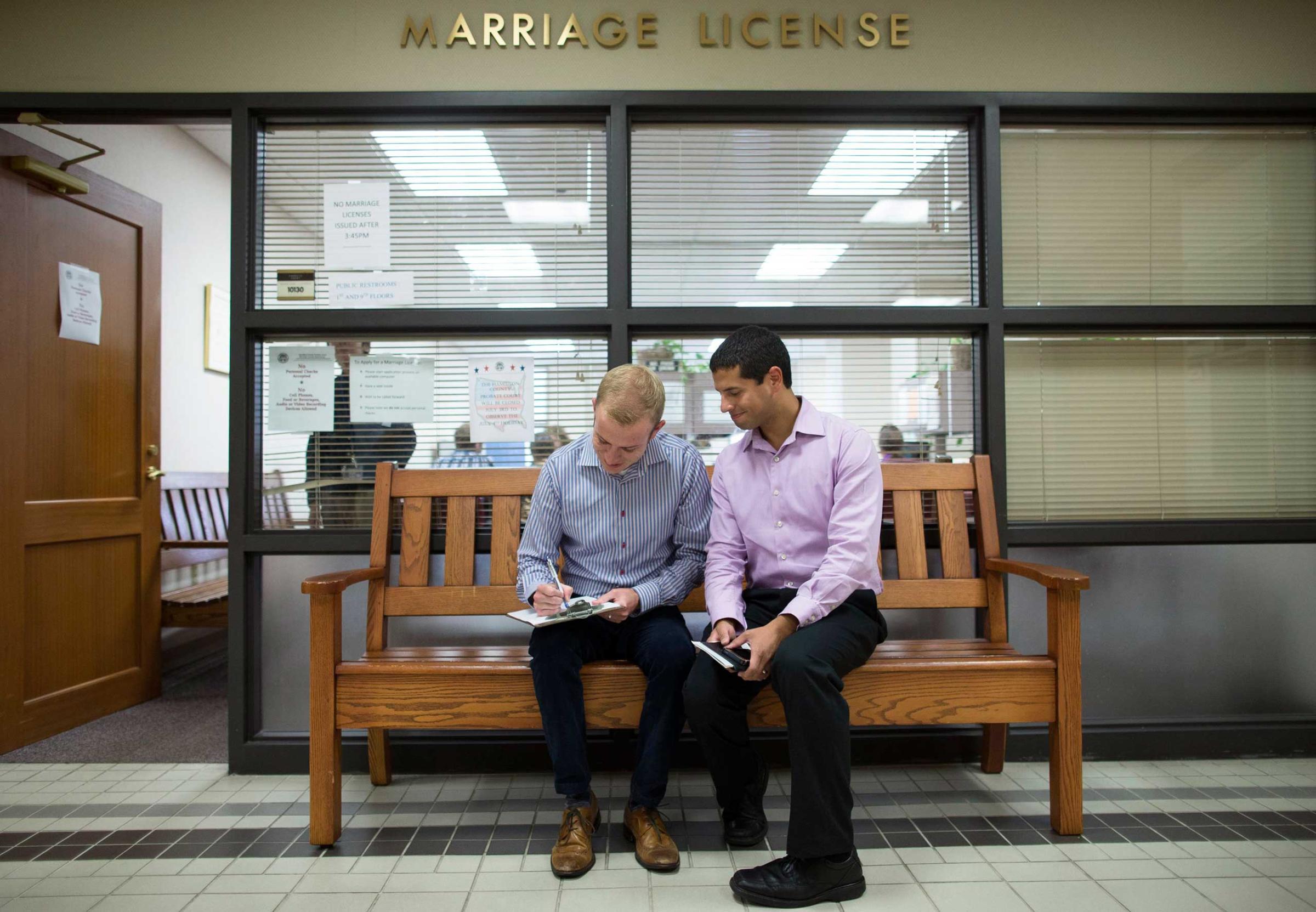
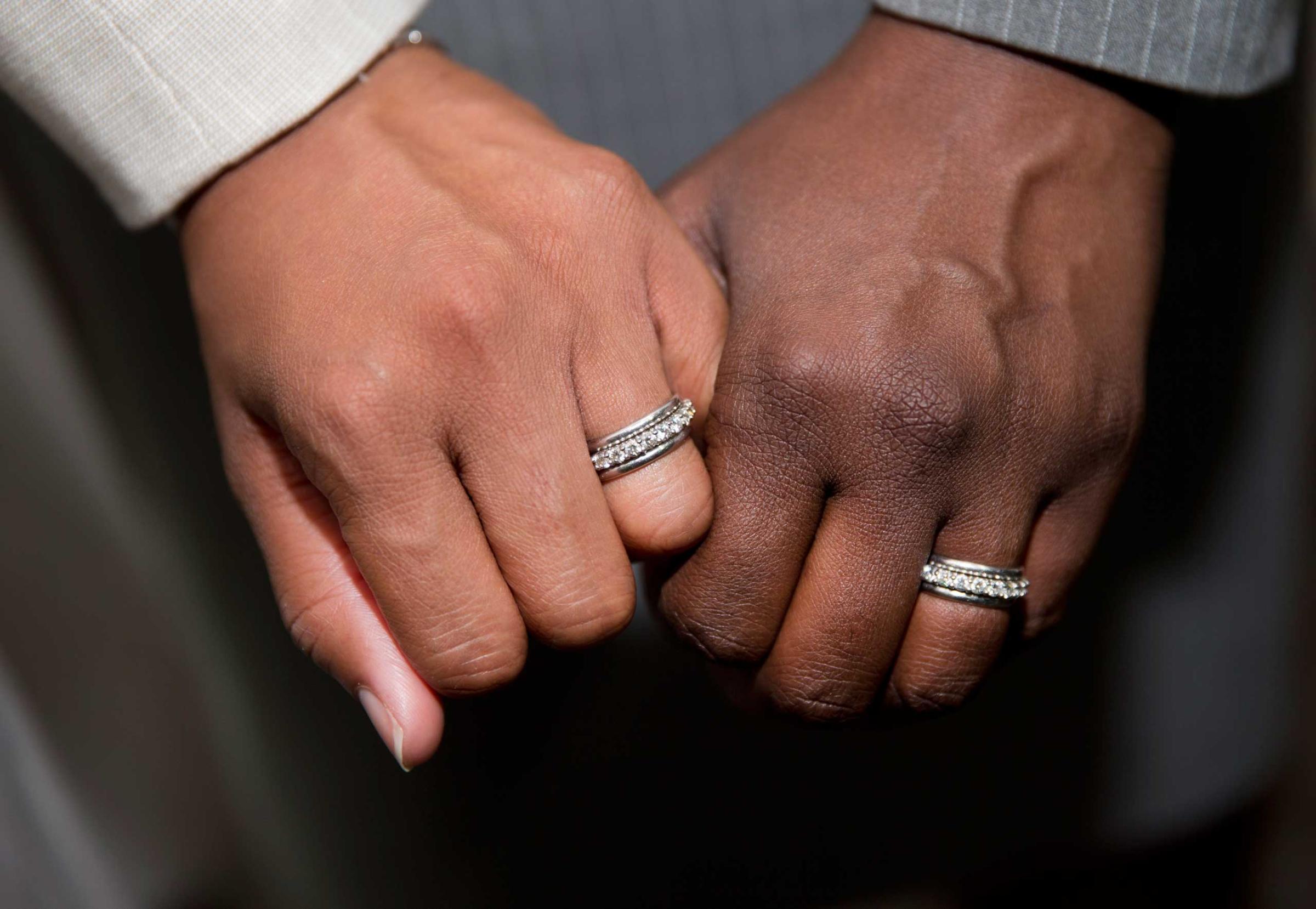
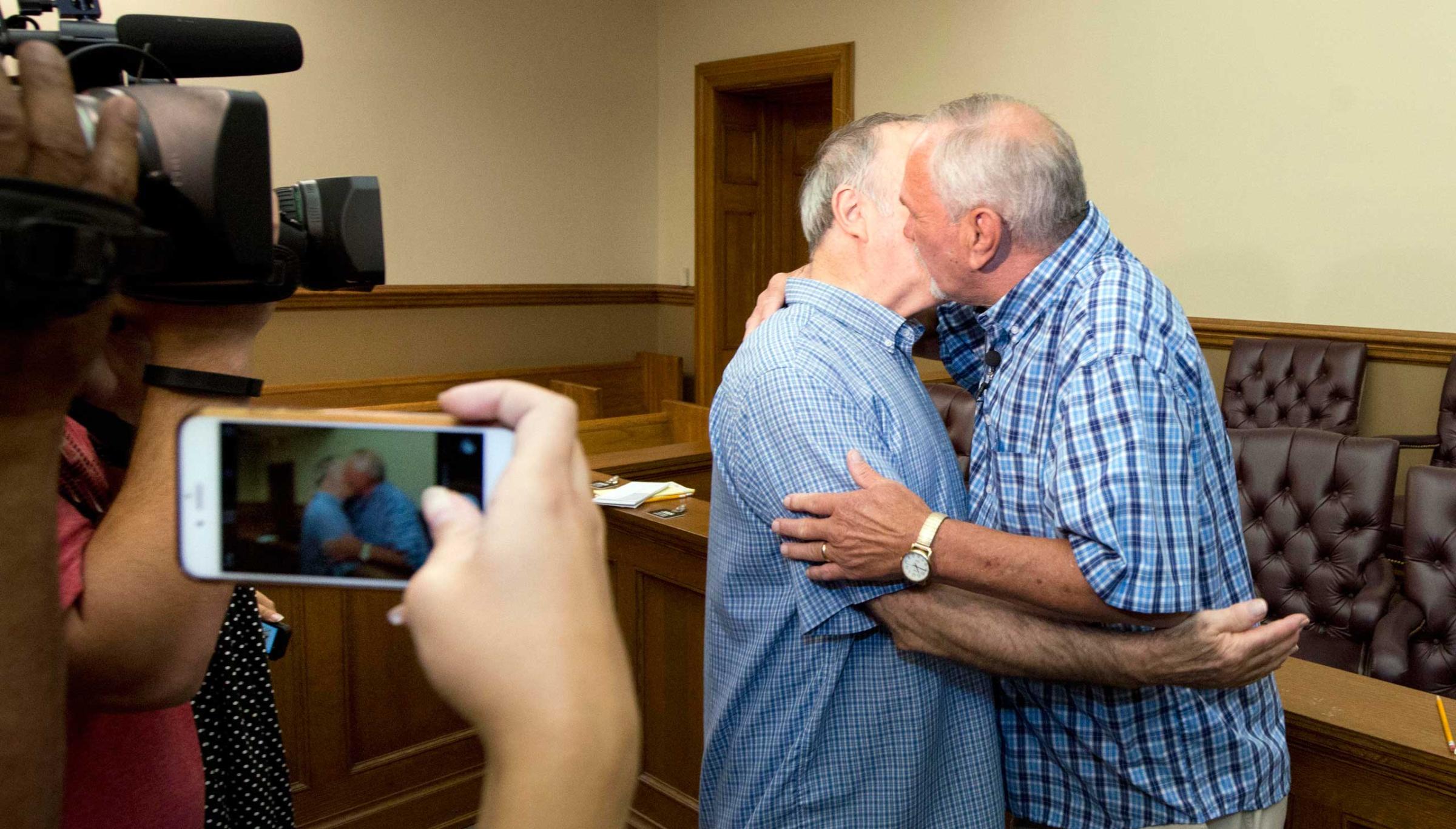
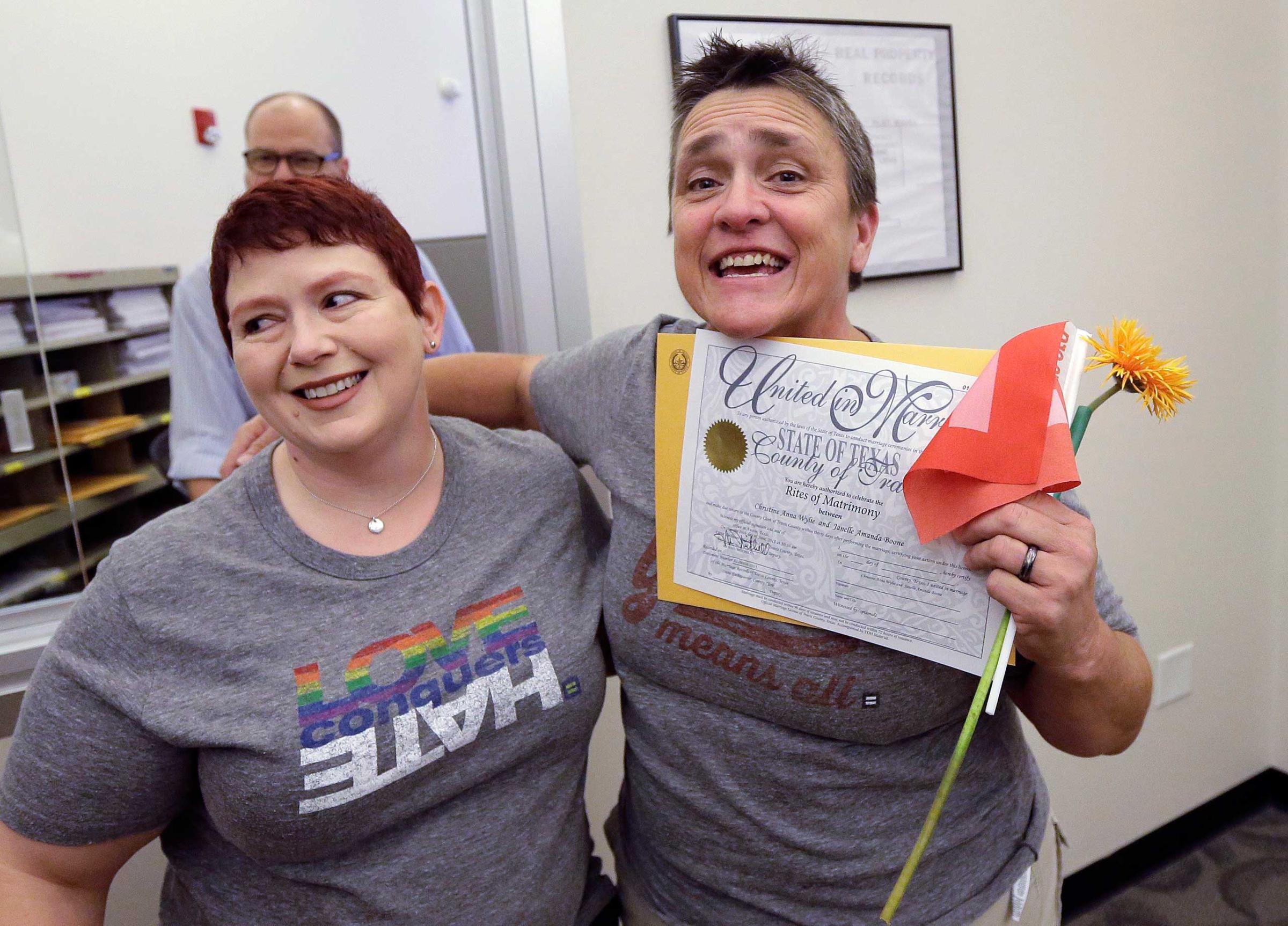
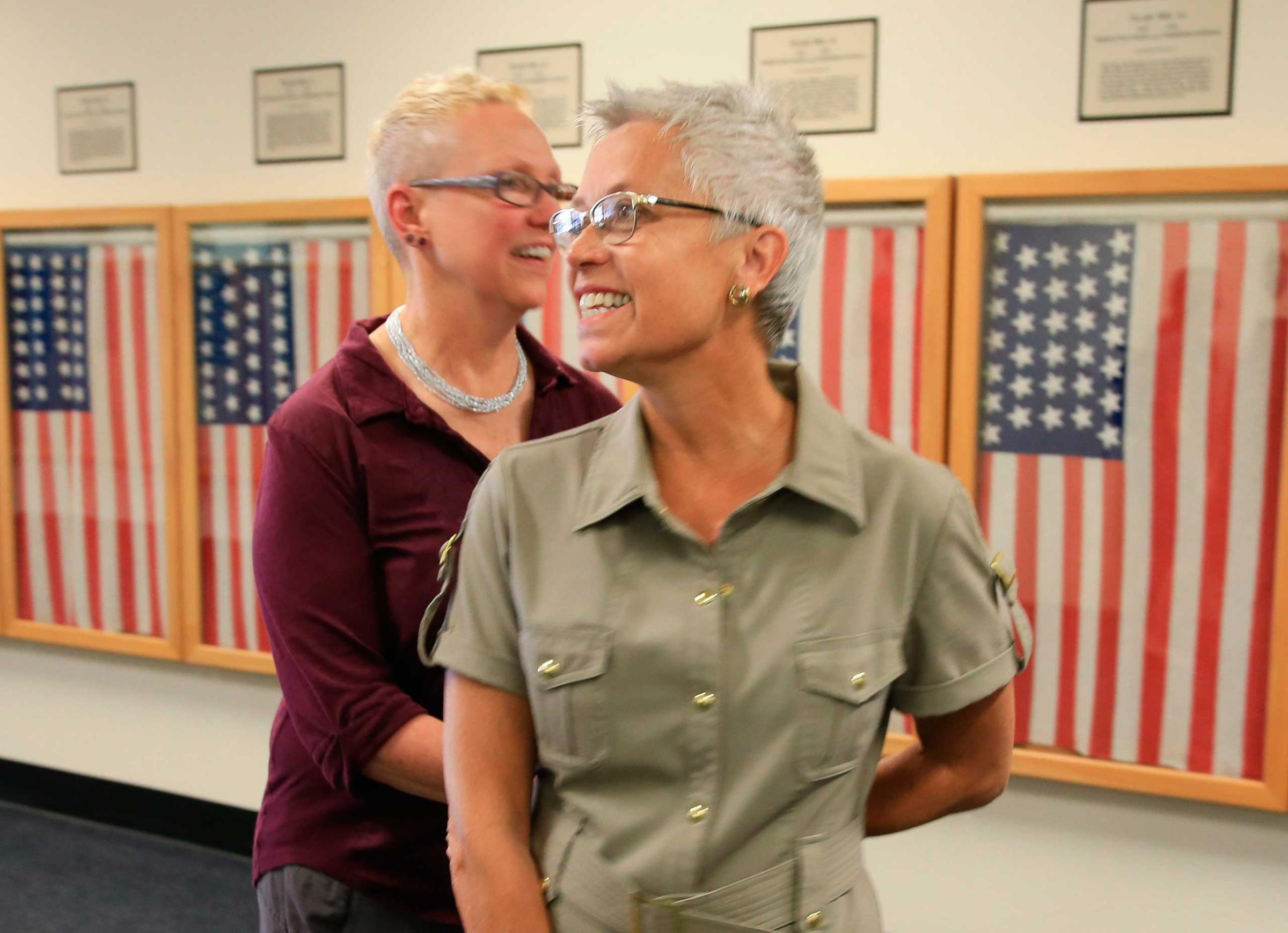
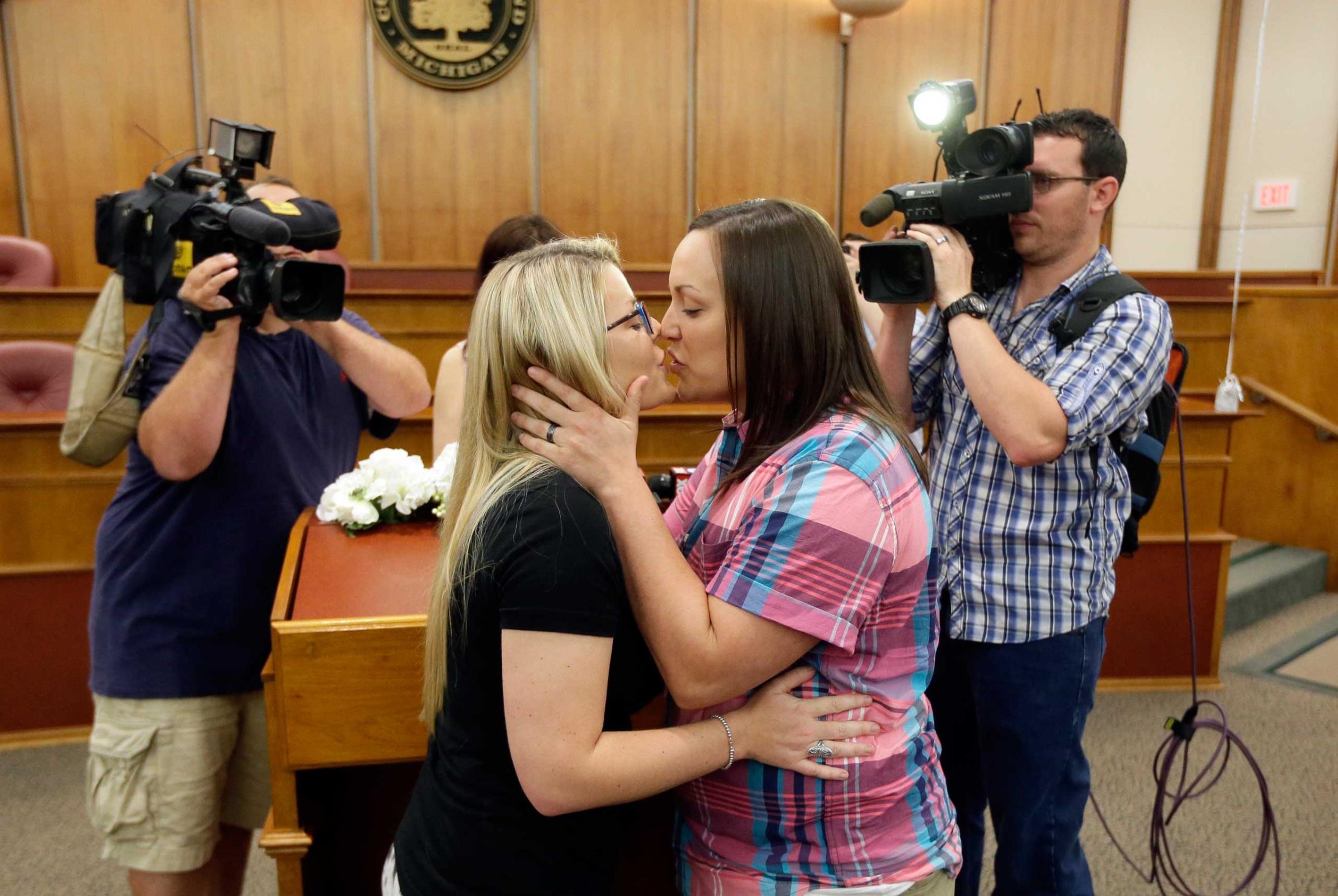
4) “Marriage will transform gay culture.”
I supported same-sex marriage for many reasons: its message of legal and civic equality; its promise of support and stability for gay couples and their kids; its potential to broaden and universalize the culture of marriage; and more. Right up there was my belief that the gay culture I grew up in was toxic and that marriage could change it.
In the 1970s, when I came of age, being gay seemed to mean leading life in a Mephistophelean subculture that was obsessed with sex and alienated from love. In that world, gay people could have casual sex with multiple strangers, but publicly holding hands and exchanging vows were unthinkable. Gay culture internalized the legal and social repression of committed relationships in ways that twisted our psyches, distorted our communities, and ultimately fed the tragedy of AIDS.
Today’s national debate about a culture of promiscuity and dangerous sexual behavior revolves around drunken straight frat parties, not gay bathhouses. This is partly because of AIDS, which shut down the baths. But it is also largely because of something I was right about: by tying sex, love, and commitment together into a coherent whole, marriage could heal a broken gay culture. The sexual underworld was not an inherent feature of homosexuality, as our critics charged; it was an artifact of life without marriage, and therefore without a destination for love.
Though casual sex and dangerous promiscuity aren’t dead (and never will be, among gays or straights), they no longer define gay culture—and never will again. Gay marriage represents our time’s greatest triumph of social conservatism, as today everyone except social conservatives can see.
5) “Marriage will heal gay kids like Jon.”
My biggest interest in marriage, though, was very personal. I understood as a young boy, long before I had any inkling about homosexuality or sex, that marriage was not for me. And this knowledge was devastating. Every step I took toward sexual love was a step away from marriage and all the social approval and personal stability that went with it. I had seen my own parents’ marriage fail painfully and harmfully (not least to me), and I yearned for the kind of stability and contentment that I saw marriage bring to my friends’ parents. Desperate to keep that option open, I spent 25 years twisting myself into neurotic knots in an effort not to be gay. (You can read about it here.)
When the idea of same-sex marriage came on the scene, I immediately saw it as a form of vaccine against homosexual self-hatred. I imagined how much different, and better, my life would have been had I assumed as a young child that the path to marriage was open to me: that I could love, and be loved, within adult life’s most sustaining and engulfing institution.
Today, young gay children know from the first whispers of sexual awakening that they can progress from their first crush to dating, committed relationships, and a destination in marriage. And for the most part that’s what they are doing. Marriage has been a miracle cure for gay self-hate. Of course being young and gay will always be difficult and confusing for many people. But now it can also be something it never could be before: normal.
6) “Gays will actually get married.”
Actually, I didn’t quite have the nerve to predict this. In fact, I worried about it. In 1996, when I published a big article on gay marriage in The New Republic, I ended it this way: “The biggest worry about gay marriage, I think, is that homosexuals might get it but then mostly not use it. … It is not enough, I think, for gay people to say we want the right to marry. If we do not use it, shame on us.” Twenty years ago, after all, many in the gay-rights movement saw themselves as sexual liberators, rejecting “heteronormative” straitjackets like marriage.
I’m going to put this in the win column, because in my heart I always believed that gay America would embrace marriage. Before long, I saw I was right. A turning point came on that day in San Francisco in 2004, when same-sex marriage was briefly legalized and the world saw gay couples lining up outside the courthouse and around the block. (There are some marvelous photos here.) Massachusetts, legalizing gay marriage a few months later, saw a similar rush to the altar—a rush that has never stopped.
Irving Kristol, the late conservative editor and commentator, used to joke about gays and marriage: “Let them have it, they won’t like it.” Boy, was he wrong. Gay couples have reminded the straight world how much marriage really matters.
And, finally: what was I wrong about? Here are the biggest three surprises:
7) “Gay marriage will take decades, if it ever happens at all.”
When I published my first words advocating same-sex marriage (for a memorable Economist cover and editorial in January of 1996), I thought I was writing for some future generation. Almost nobody supported the idea or even took it seriously. Getting a gay-marriage bill introduced in even a single house of a single state legislature was unthinkable. The courts were rudely dismissive, except in Hawaii, where their openness to the idea sparked a state and national backlash—led by Democrats, notably President Bill Clinton. This was not an uphill battle. It was no battle at all. It was a flea annoying an elephant.
I was astonished when Massachusetts’ supreme court legalized gay marriage there in 2004, only eight years after the notorious Defense of Marriage Act swept through Congress: and I’ve been astonished ever since. I was not only wrong about the pace of change, I was wrong by an order of magnitude. I forever nagged gay-rights advocates to be patient and go slow. They retorted that I was underestimating the country’s movability. It took a few more years, but starting in 2012, when the tide turned, they proved right. I have never been so happy to be wrong.
In my defense, there is no precedent in American history for so rapid a fundamental social change. The folks at Bloomberg put together this nice graphic illustrating the point. Everything I knew about social change foretold a long, slow battle. Why change came so quickly and dramatically will be debated for generations. It could only happen, I think, because a lot of vectors converged. I’ve tried to explain some of them in this 2013 article. Whatever the reasons eventually prove to be, I stand by what I concluded in that piece:
At the end of the day, however, to me an element of mystery remains. America’s change of heart toward its gay citizens is the greatest awakening of mass conscience in the United States since the civil rights movement of the 1960s, but it was achieved with far less bloodshed and bitterness. It is born of persuasion and love, not violence and hate.
Witnessing this awakening has been the most exhilarating and humbling experience of my life. Explaining it completely is, perhaps, impossible. Or perhaps I just want completely explaining it to be impossible. It feels, after all, like a miracle.
8) “Marriage will retire the gay civil-rights agenda.”
Marriage, it always seemed to me, was the big kahuna for gay equality: so powerful in its symbolism and social reach as to come about only when there was little or nothing else left to be done. I assumed that traditional civil rights protections forbidding anti-gay discrimination by employers, landlords, and commercial businesses would be much less controversial than marriage and would be settled much earlier.
Oddly, I was wrong. Marriage was indeed much more controversial; today most Americans believe, incorrectly, that discrimination based on sexual orientation is already generally illegal. Yet marriage is now legal nationwide, but a majority of states and the federal government still lack antidiscrimination laws!
Indeed, antidiscrimination laws appear to be growing more controversial, because religious organizations see them as coercing participation in gay marriage. Conservative states are lining up to pass laws that shelter religious organizations, people, and businesses from antidiscrimination provisions. Like it or not, marriage or no, the battle over gay civil rights rages on.
9) “Writing about gay marriage will wreck my career.”
This was my father’s prediction, not my own. In 1995, he begged me to reconsider my leap into advocacy for same-sex marriage because, he said, the whole idea was so nutty that by favoring it I would give up my standing as a serious journalist. Twenty years ago, his qualms seemed perfectly reasonable.
I leapt anyway. And opprobrium never came. Instead I found astonishing receptivity. Never, to my knowledge, have I been punished or marginalized for saying my piece about marriage; time and again, my case has been welcomed in America’s most prominent journals—including some leading conservative ones, such as National Review and the Wall Street Journal, whose editorial positions were very different from my own.
In the wake of Obergefell, I received tweets and emails lauding my heroism. The truth is more like the opposite: after taking some risk initially, I never suffered or sacrificed at all. The real heroism was displayed by the culture and country, which opened its ears and ultimately its mind. For all the talk (some of it justified) of political correctness on the left and epistemic closure on the right and shrillness and polarization everywhere, I have learned that America, today as much as ever, or maybe more than ever, is a place where people can be brought to listen, consciences can be pricked, ideas can matter, and small, marginal voices can make themselves heard. That, to me, is a greater miracle even than gay marriage.
More Must-Reads from TIME
- Donald Trump Is TIME's 2024 Person of the Year
- Why We Chose Trump as Person of the Year
- Is Intermittent Fasting Good or Bad for You?
- The 100 Must-Read Books of 2024
- The 20 Best Christmas TV Episodes
- Column: If Optimism Feels Ridiculous Now, Try Hope
- The Future of Climate Action Is Trade Policy
- Merle Bombardieri Is Helping People Make the Baby Decision
Contact us at letters@time.com